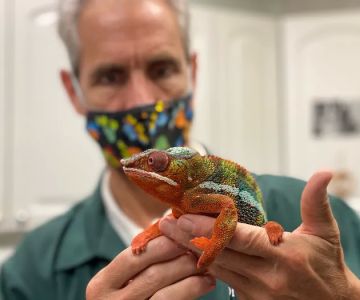1. Introduction: Why Proper Nutrition Matters for Pregnant Dogs
Pregnancy in dogs is a delicate time that requires extra care and attention, especially when it comes to their nutrition. Just like humans, pregnant dogs need specific nutrients to ensure the health of both themselves and their growing puppies. In this guide, we will discuss the best food options, feeding schedules, and tips for caring for a pregnant dog to ensure a healthy pregnancy and successful delivery.
2. Understanding the Nutritional Needs of Pregnant Dogs
During pregnancy, a dog’s nutritional needs increase significantly. They require more energy, vitamins, and minerals to support the development of the puppies and their own health. Providing the right food is crucial for preventing complications and ensuring the overall health of the dog and her puppies.
1. Increased Caloric Needs
Pregnant dogs need more calories to support the growing puppies, especially in the later stages of pregnancy. A dog’s daily calorie intake may increase by up to 25-50%, depending on the size and breed. It’s essential to feed them high-quality food that provides the necessary energy without overloading them with unnecessary fats or empty calories.
2. Protein and Fat Requirements
Protein is critical for the development of the puppies’ muscles and tissues, while healthy fats provide the energy needed for the pregnancy. Pregnant dogs should receive a diet rich in high-quality proteins (like chicken, beef, or fish) and healthy fats such as omega-3 fatty acids.
3. Best Food for Pregnant Dogs: What to Feed Them
1. High-Quality Commercial Dog Food
The easiest way to ensure your pregnant dog is getting the right nutrients is to feed her high-quality commercial dog food formulated for pregnant or nursing dogs. These foods are specially designed to provide the right balance of calories, protein, fats, and essential nutrients. Look for brands that list meat as the first ingredient and contain no artificial fillers.
2. Wet vs. Dry Food
Both wet and dry foods can be suitable for pregnant dogs, but wet food can be a good option if your dog is experiencing morning sickness or has a decreased appetite. Wet food is easier to digest and can provide extra moisture to keep her hydrated. However, dry food can help with dental health and is often more affordable.
3. Homemade Dog Food
If you prefer homemade meals for your dog, ensure that the food is nutritionally balanced. A mix of lean meats, vegetables, and grains is often a good option, but you should consult with your veterinarian or a pet nutritionist to ensure the homemade food meets all her needs.
4. Feeding Schedule for Pregnant Dogs
During pregnancy, it’s essential to adjust your dog’s feeding schedule to accommodate her changing needs. Here’s what you should consider:
1. More Frequent, Smaller Meals
As pregnancy progresses, your dog may have less room in her stomach due to the growing puppies. Instead of one or two large meals a day, offer smaller, more frequent meals (3-4 times a day). This will help with digestion and ensure that she gets all the nutrients she needs.
2. Monitor Weight and Health
While it’s normal for your pregnant dog to gain weight, make sure she’s gaining at a healthy rate. Avoid overfeeding, which could lead to excessive weight gain, putting stress on her joints and leading to complications during delivery.
5. Common Concerns and Challenges During Pregnancy
1. Morning Sickness and Loss of Appetite
Just like humans, some dogs experience morning sickness during pregnancy, especially in the early stages. If your dog is refusing food or seems nauseous, try offering her small, easy-to-digest meals or switching to wet food. Consult your vet if the issue persists.
2. Weight Gain and Obesity
While weight gain is expected, it’s essential to avoid excessive weight gain, which can complicate the pregnancy. A balanced diet and portion control are essential for managing your dog’s weight during pregnancy.
3. Preparation for Labor
As your dog’s due date approaches, it’s important to prepare for labor. Make sure she has a quiet, comfortable place to give birth, and have your vet’s contact information handy in case any complications arise during delivery.
6. Real-Life Story: Successfully Caring for a Pregnant Dog
Sarah, an experienced dog owner, was thrilled when her dog Bella became pregnant. After researching the best ways to care for pregnant dogs, she switched Bella to a high-quality pregnancy diet and ensured that she received proper care and attention throughout her pregnancy. Sarah monitored Bella’s weight, kept her hydrated, and gave her smaller, more frequent meals as her belly grew. Bella gave birth to a healthy litter of puppies, and Sarah’s careful attention to her nutrition played a key role in their successful delivery.
8. Conclusion: Ensuring a Healthy Pregnancy for Your Dog
Proper nutrition and care are essential for the health of both your pregnant dog and her puppies. By feeding her the right diet, ensuring she gets enough rest, and monitoring her health closely, you can help ensure a smooth pregnancy and healthy puppies. If you need expert advice, don’t hesitate to visit Hidden Brook Veterinary for guidance on caring for your pregnant dog.










